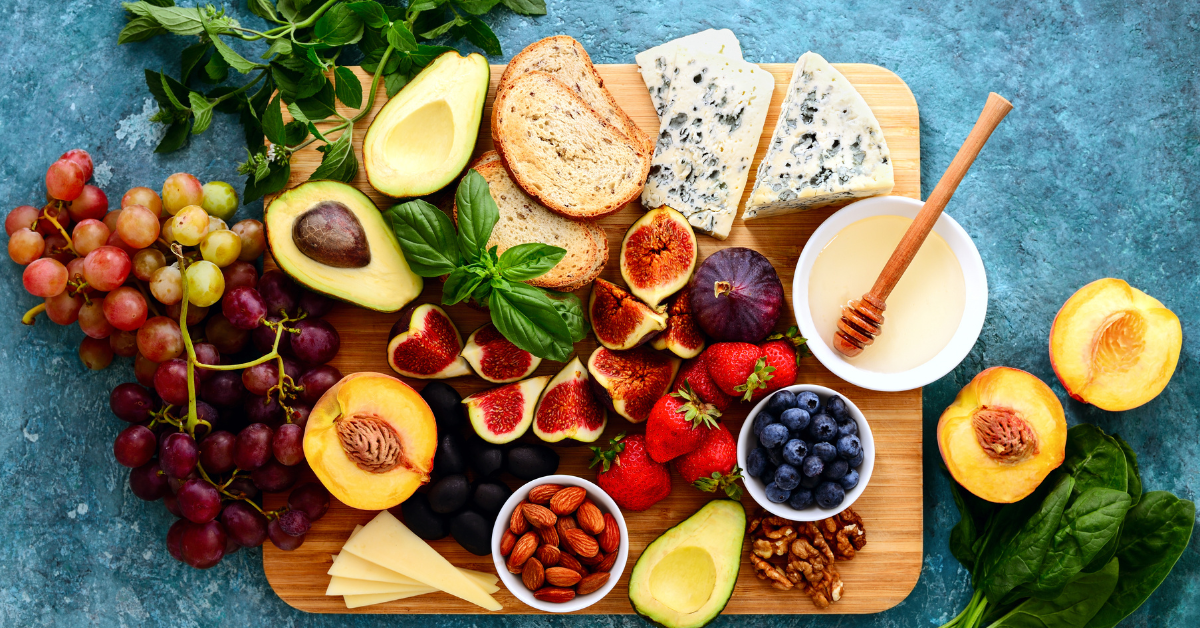The Role of Snacking in Our Eating Habits
Munching between meals is the norm for many people especially when cooking for one. Is this a healthy practice or are we better off without snacks? Like with almost everything in nutrition, whether you include snacks or not depends on you and your unique body. We all respond differently to different styles of eating.
Determining the Need for Snacks: Individual Factors and Meal Spacing
If your meals are spaced 4-5 waking hours apart and balanced with a protein-rich food, non-starchy
veggies and some healthy fat, a snack is probably not necessary. However, if your meals are more than
5-6 hours apart, you have health conditions such as delayed gastric emptying, are at risk for hypoglycemia or need to gain weight, snacks can be beneficial. If you find yourself “hungry all day long”
and you find yourself snacking out of habit, pay attention to the content of your meals; there’s a good
chance you are not getting adequate protein and fiber at your meals. By creating more balanced meals,
you can probably forgo the snacks.
Timing of Snacks: Finding the Right Balance
If you are including snacks within your meal plan based on true need, wait at least 2-3 hours after a meal
and allow 2-3 hours from the time of your snack until the next meal. If you are snacking out of boredom
or find yourself eating within two hours of a meal, think of some non-food related activities to do such
as call a friend, play a game, read or engage in a hobby.
Creating Balanced Snacks: Essential Components for Sustenance
A well-balanced snack features healthy fats, proteins, and carbohydrates with minimal artificial
ingredients and added sugar and provides 150-200 calories.
- Carbohydrate: Carbohydrates provide fuel. That’s why when you’re low on energy, this is often
what you’ll crave. Fiber-filled carbohydrates are best so opt for fruit and veggies in place of
chips, crackers, pretzels, high sugar granola bars, cookies, candy or ice cream. - Protein: Protein is for staying power. Not only is this macronutrient the building block for muscles
and other lean tissue, it also boosts satiety and helps regulate appetite. - Fat: Fat gives satisfaction. Fats are calorie-dense and a little goes a long way, but they’re still
important for staying full and satisfied.
Healthy Snack Combinations: Fueling Your Body with Nutritious Choices
- Sliced apple and 1 ounce cheese
- 1 cup milk and ½ cup berries
- 2 Tablespoons mixed nuts and 1 cup melon
- 6 high fiber crackers and 1/3 cup hummus
- ¾ cup oatmeal with fruit and almond butter
- 2 Tablespoons each dried fruit and pecans
- 6 ounces Greek yogurt with ½ cup grapes or berries
- 1 cup homemade trail mix with popcorn, nuts and dried cranberries
- 1 ounce meat and 1 ounce cheese roll-ups with veggies
- A hard-boiled egg and veggies
- Celery sticks and peanut butter
- ½ cup Edamame with sliced cucumbers
- ¼ cup cottage cheese and 1 cup fruit
- 1 slice whole grain toast and peanut butter
Embracing Mindful Snacking Habits for Optimal Health
In the world of nutrition, the question of whether to snack or not can be answered with “it depends.” Every individual is unique, and their bodies respond differently to various eating styles. While some may find that well-balanced meals spaced 4-5 hours apart provide sufficient nourishment, others may benefit from incorporating snacks into their routine.
When it comes to snacking, timing is key. If you genuinely require a snack based on your meal plan, allow a gap of 2-3 hours after a meal before indulging. Similarly, ensure there are 2-3 hours between your snack and the next meal. However, if you find yourself snacking out of boredom or within two hours of a meal, consider engaging in non-food activities to divert your attention.
To make snacking a healthy and satisfying experience, opt for well-balanced options. Look for snacks that include a mix of healthy fats, proteins, and fiber-filled carbohydrates. Fruits, vegetables, nuts, and dairy products can be excellent choices. Avoid snacks loaded with added sugars and artificial ingredients.
Remember, the goal is to create meals and snacks that leave you feeling energized and satisfied. By paying attention to the content of your meals and incorporating more balanced options, you may find that the need for snacks diminishes.
Snacking can be a delightful and nourishing part of your daily routine. Experiment with the suggested snack combinations or try out the featured recipes like No Bake Peanut Butter Balls and Easy Fruit Salad. Embrace mindful snacking habits that support your overall health and well-being.
So, whether you choose to snack or not, listen to your body, honor its unique needs, and make choices that align with your personal health goals.

